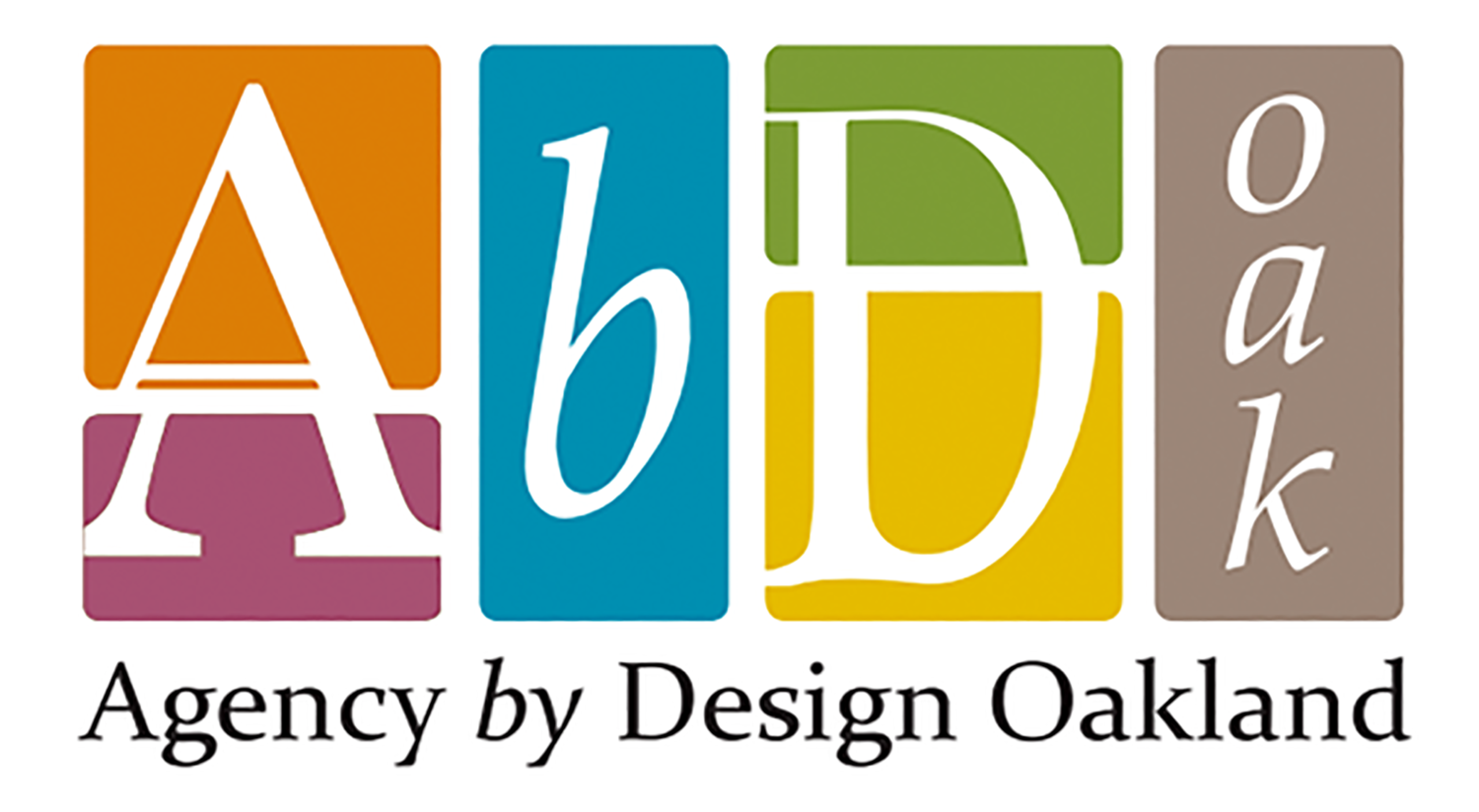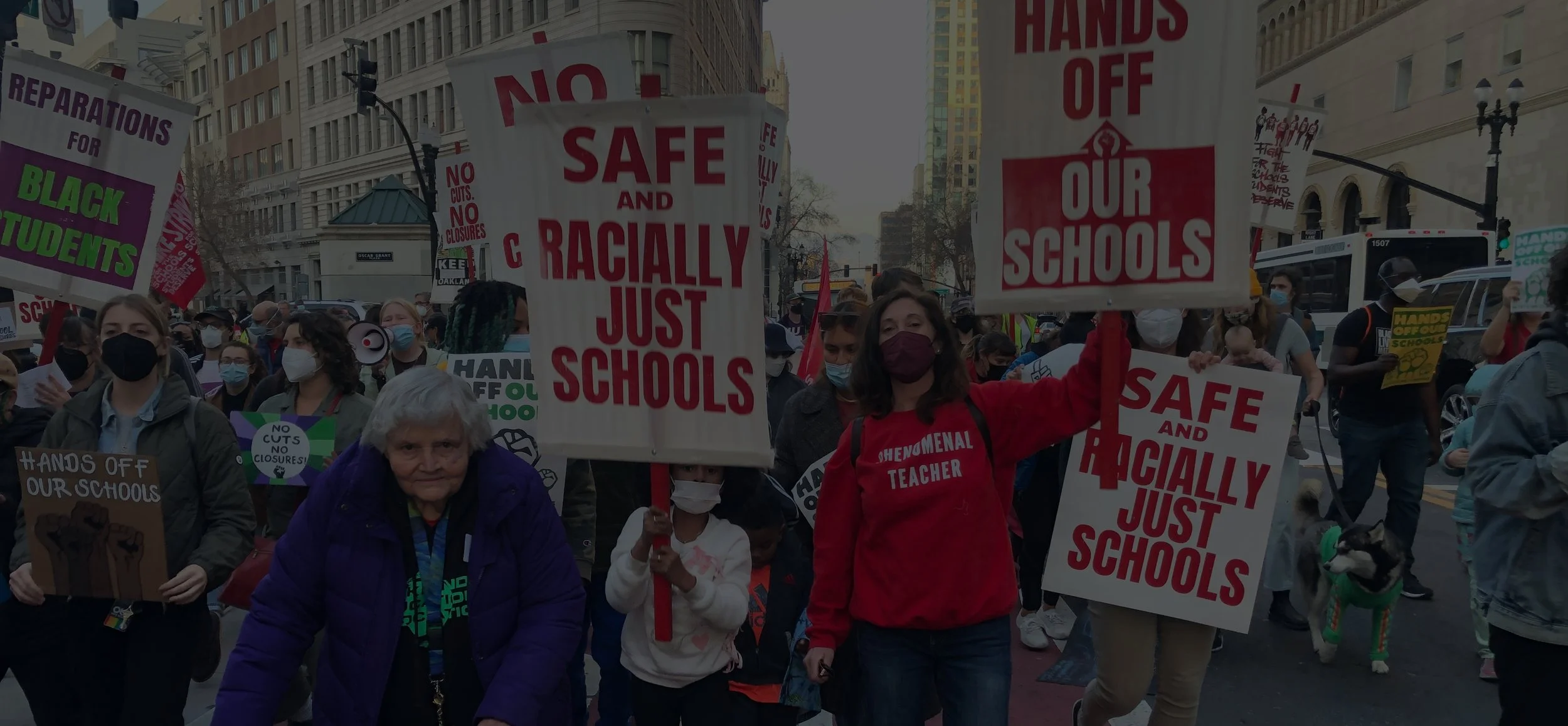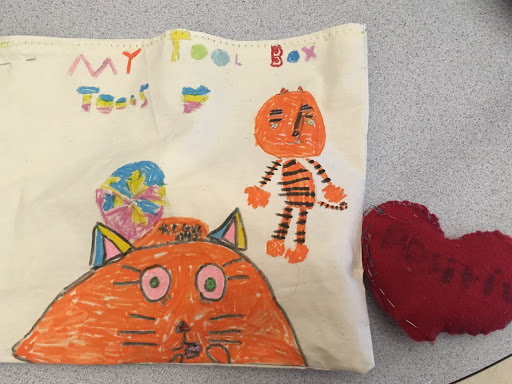A PICTURE OF PRACTICE BY 2018-2019 AGENCY BY DESIGN OAKLAND TEACHER FELLOW Liz Cruger
Liz works at EnCompass Academy, a K-5 elementary school in the Woodland neighborhood in Oakland, CA serving a student population that is 96% students of color. 60% of the students at EnCompass Academy are classified as English Language Learners.
“What have you learned from working on our Maker projects?” was the first question on the student reflection. Within minutes the room got quiet as students were writing reflections about their work. “I learned to be kind to people, be helpful, and also use my tools,” wrote Noah. “I learned I can do everything if I try,” said King. “I learned to persevere when I’m sewing,” Sasha responded. Reading these reflections was incredibly gratifying because it meant this work was reaching deep within my students and hopefully will have a lasting impact on their lives.
For thirteen years, I’ve had students within my classes who were struggling with Adverse Childhood Experiences (ACEs), which result in toxic stress that can harm a child’s brain. For the 2018-2019 school year, however, the serious traumas and toxic stress my students are experiencing is overwhelmingly high. As much as I try to create a safe and positive learning environment, my students continue to struggle with healthy interactions. They have difficulty managing their emotions, communicating their feelings and needs, and thinking calmly and clearly to become problem solvers. I had to do something MORE to support my students to build resilience, confidence, and learn strategies for a healthy emotional life. This need led me to my inquiry question:
“How can I use maker-centered learning projects and routines to help support and heal the social and emotional learning needs within my classroom?”
The 12 Tools from TOOLBOX (by Dovetail Learning).
We started by having a discussion about emotions. “Everyone has emotions,” I said. “They are completely natural…we don’t have to think of them as good or bad, but rather, we might feel them as comfortable or uncomfortable.” I began like this to take judgment away from the emotions that my students may feel are difficult. We brainstormed emotions and put them in categories of comfortable and uncomfortable. For our first maker project, each student created an Emotions Book, which included their self portraits. Using TOOLBOX (our school’s SEL curriculum), the students also integrated tools from the 12 featured TOOLBOX Tools or other strategies that they could use when experiencing uncomfortable emotions.
Students collaborating and helping each other with cardboard construction.
Our emotions exploration led to a second project in which each student created a three-dimensional cardboard toolbox or fabric toolbag, in which to put physical tools that they also created. I The materials I provided were cardboard, masking tape, glue guns, fabric, fabric markers, paint, and other art materials. This was an open-ended project. Students used their design and construction skills to build and make what they wanted to create. I started to see my students really owning and enjoying the maker process. They were excited about creating. There was a productive hum in the room. Collaborations developed and students who didn’t always get along were choosing to work together. Students were engaged, persevering with the difficult tasks of construction and sewing -- using materials to create their personal visions. They were sharing ideas and even making toolbox gifts for others.
“Collaborations developed and students who didn’t always get along were choosing to work together. Students were engaged, persevering with the difficult tasks of construction and sewing — using materials to create their personal visions.”
A student’s tool box with an Empathy Tool.
We then had discussions about the TOOLBOX Tools that we could make to go inside our toolboxes and toolbags. For example, some students created stuffed hearts to hold and remind them of the Empathy Tool. I saw toolboxes and toolbags that included replicas of the tools, pillows to hold, and pictures. The TOOLBOX Tools have become much more real and meaningful to us through making.
This project has had a big impact on my class. They love time spent making and creating and ask to do it every day. I’m reminded, again, that students need and deserve art and making-centered learning in school. For my students, art and making is an act of healing and critical to their emotional well-being. It is helping them to feel creative and calm. This is only just the beginning of a much longer process of building resilience.
Liz Cruger’s documentation booth at Agency by Design Oakland’s culminating event on May 4, 2019.
“Maker-centered learning invites people to be creative within a huge array of disciplines. It is an invitation to express yourself, find your voice, work with others, teach, learn, fix things, transform materials, think, reflect, problem solve, look closely, collaborate, persevere, and often have fun. For young people it is often very empowering, which makes it important. It can help shape identity..."I am a Maker". This empowerment, capacity to be creative and problem solve is a perspective that can guide a person through life.”
Liz is from Detroit, and feels lucky to be from a Maker family...her dad is a found object artist and automobile clay modeler and her mom creates quilts and pottery. Liz studied Theater and Interdisciplinary Arts in Chicago, working as a waitress, actress, director and writer. Liz is currently part of the Collaborator Staff at Brightworks, a K-12 learning community in San Francisco, CA. During her time as an Agency by Design Oakland Teacher Fellow, Liz was the 2nd/3rd Grade Inclusion Teacher at EnCompass Academy in Oakland, CA.

























